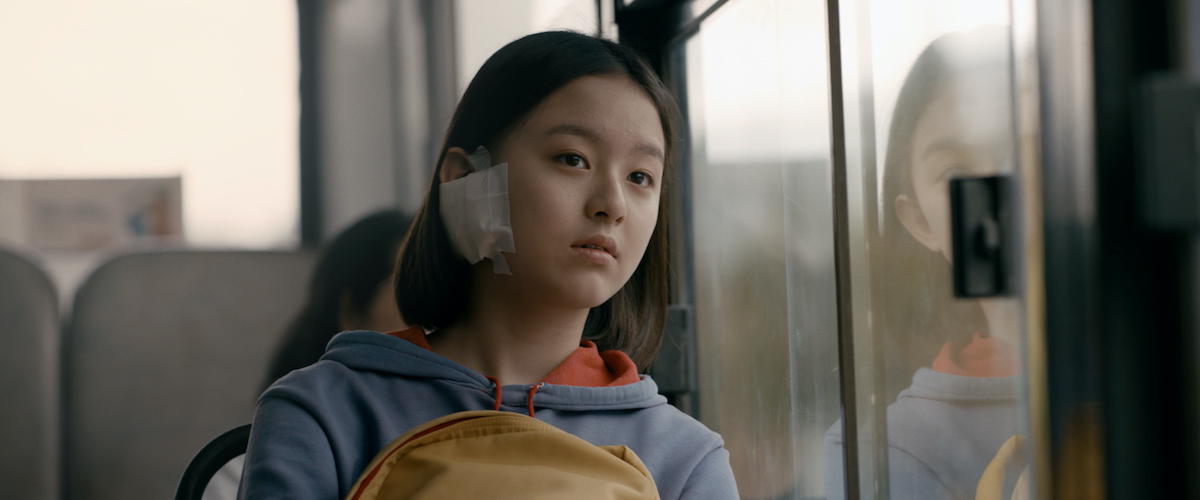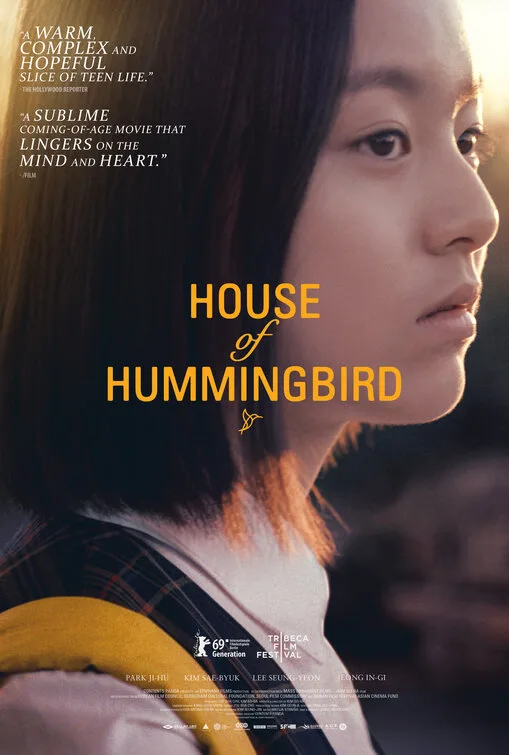“House of Hummingbird” is a coming-of-age story about a lonely and awkward teenager struggling to figure out who they are and who they hope to become in a time of upheaval both in their personal life and in the outside world. Based on that description alone, there is an excellent chance that many of you are having flashbacks to any number of movies that have fit, albeit sometimes awkwardly, those parameters. This one, however, is one of the good ones—a thoughtful and engrossing take on a familiar theme that is boosted immeasurably by the contributions of writer/director Bora Kim and young lead actress Ji-hu Park. “House of Hummingbird” deserves a place alongside the likes of “The Virgin Suicides,” “The Ocean of Helena Lee” and “Eighth Grade” as one of the most knowing cinematic takes from recent years on the pains and occasional pleasures of female adolescence.
The film is set in Seoul, South Korea in 1994, a year that would prove to be an especially significant one in the country’s recent history, ranging from the country’s participation in the World Cup to the death of North Korean leader Kim Il-sung, to an infamous tragic disaster that I will not go into any further as it does become a key element of the narrative. However, the story’s true focus is on Eun-hee (Park), an eighth grade girl whose own life is as tumultuous as anything happening in the outside world. At home, her parents (Lee Seungyeon and Jeong Ingi), who run a rice cake shop, spend all their time drilling the importance of education into her and her older siblings, favorite son Daehoon (Son Sangyeon) and sister Suhee (Bak Suyeon)—the relentless pressure has already driven Daehoon around the bend to the point where he beats on Eun-hee to relieve his frustration and caused Suhee to virtually withdraw. At school, her teacher has already more or less written her off, and her rich classmates whisper that she will one day be working as a maid for them. However, Eun-hee is not unintelligent or a troublemaker—it’s just that her interests and talents, particularly a flair for drawing, are not the kind that can really flourish in such regimented surroundings, especially in a society where men already have the upper hand in nearly all respects.
Over the course of the next few months, Eun-hee struggles to bear up under the general indifference of her parents and teachers, the physical violence of her older brother (who is never taken to task for his abuse) and the general day-to-day cruelties found at school. She also finds herself dealing with a health scare that grows in significance over time and which her parents show zero interest in until it becomes too much of a problem to ignore. Eun-hee’s life isn’t entirely filled with miseries, however. She hangs out with best friend Ji-Suk (Seo-yoon Park) getting into low-degree mischief, at least until a misadventure in shoplifting goes sideways. There are a couple of romantic possibilities that turn up as well—one a boy, Ji-wan (Yoon-seo Jeong), that she shares a couple of kisses with even as we can sense that it won’t last for long, and the other a girl named Yuri (Hye-in Seol), who offers her a kind of unrestrained affection that she has never really experienced before. Most significantly, there is Young-ji (Sae-hyuk Kim), her new Chinese character tutor who becomes arguably the first person in her life to not only notice her unique gifts but offer a real sense of hope that there is a world awaiting her that will fully appreciate them.
While she has done a couple of short films before, “House of Hummingbird” marks Kim’s feature debut but one would be hard-pressed to notice thanks to the skill she demonstrates as a writer and director. Although there are doubtlessly aspects of the story that will resonate more deeply with Korean audiences (who will presumably be more primed for the major event that the story is building towards in the final scenes), she finds a way of recognizing and depicting the emotional perils of adolescence—especially the way in which seemingly unshakeable friendships can turn on a dime—in ways that cut across all cultural boundaries. (When Eun-hee is blown off by a former friend with a cooly dismissive “That was last semester,” one hardly even needs to read the subtitle to feel the impact of that particular blow.) At the same time, Kim does not milk the material for melodrama like a less confident filmmaker might—a lot happens to Eun-hee over the period shown here but you never get the sense that things are being piled on in order to engender extra sympathy for her. In fact, Kim employs an unusually empathetic approach to nearly all the characters to suggest that they are real people and not just plot points—even the most ostensibly hateful character, her abusive brother, is given a couple of moments to underscore just how damaged he is and how that has driven him to lash out for no ostensible reason. The only thing that betrays this as a first feature is that it maybe goes on a little too long for its own good. Even then, it never outstays its welcome.
Besides, the extended running time for “House of Hummingbird” means we get to spend more time watching Ji-hu Park delivering what is sure to go down as one of the most notable breakthrough performances of the year. She is on-screen for nearly every single one of the film’s 138 minutes and there is not one when she is anything less than absolutely mesmerizing. Whether experiencing some small and simple pleasure like listening to music, or trying to come to terms with situations that would floor most adults, she is alternately winning and heartbreaking as she conjures up instantly recognizable emotions (including some they may have undergone years of therapy to try to forget) and her one-on-one scenes with Sae-byeok Kim as her inspirational teacher (a cliche character that proves to be anything but in her hands) are a marvel. Through her standout work, she brings a strength to Eun-hee that reassures viewers that no matter how bleak things may get for her character, she will one day not only make it through her tribulations unbroken, but use those experiences for her future endeavors. Perhaps someday, she will write and direct a film as wonderful as “House of Hummingbird.”
Now available through virtual cinemas.




















